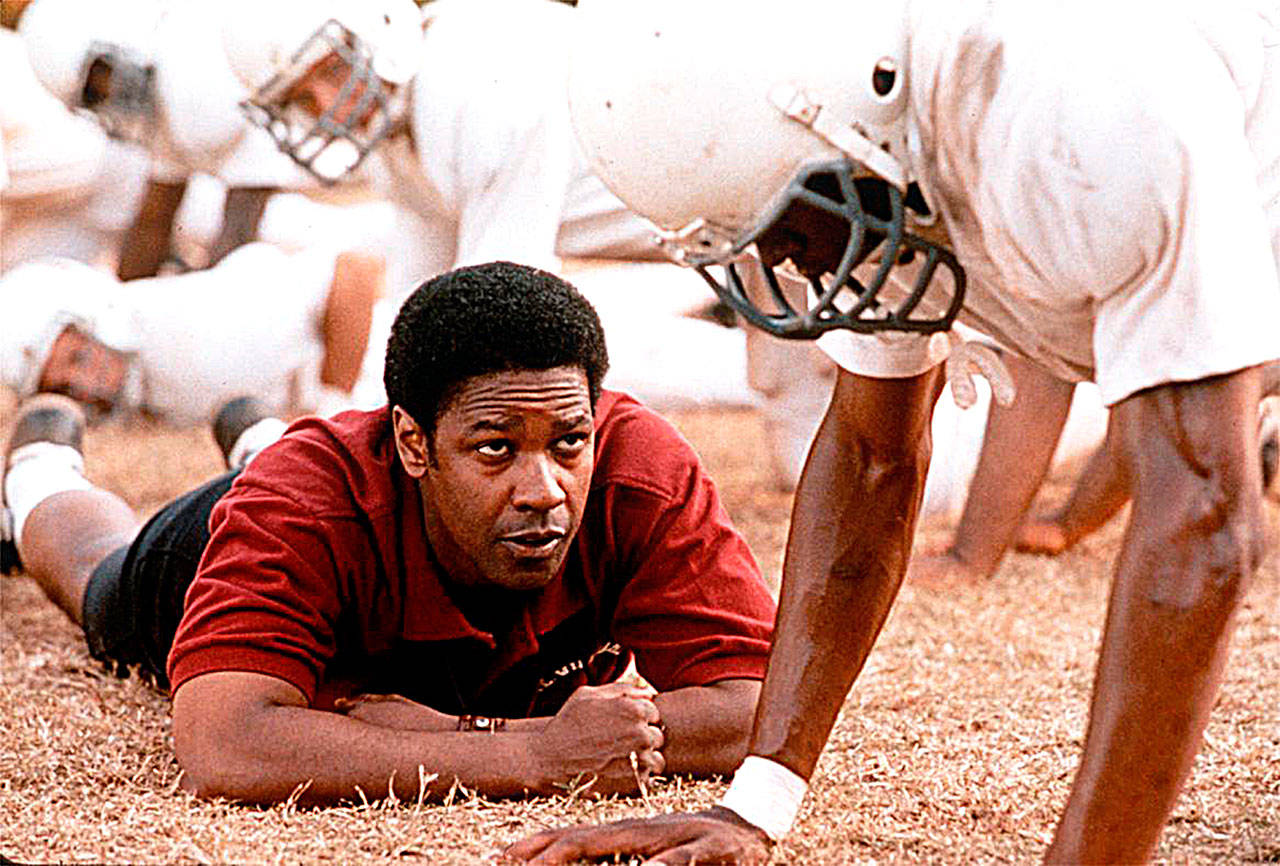By Rick Anderson
For The Daily World
The gritty “Friday Night Lights” might be the most authentic movie about high school football. But for entertainment value, my vote goes to “Remember the Titans.”
Compelling and well-acted, the 2000 gridiron drama was both a critical and financial success. It remains one of the best of the inspirational sports films — a genre that has produced offerings of wildly varying quality.
Less admirably, it also embodies the strengths and weaknesses of films “based on a true story.”
Whenever a movie is advertised as “based on a true story,” it’s movie-speak for “We’re using real-life characters and incidents, so we can make up everything else.” Had “Titanic” been based on a true story, the ship might have stayed afloat.
The screenwriters of “Remember the Titans” distort the historical record so liberally that the film could have been retitled “Remember the Titans But Forget the Facts.”
Fortunately, those discrepancies don’t significantly diminish the film’s quality.
The story is set in Alexandria, Va., during the early 1970s, just after T.C. Williams High School is integrated. Tough-minded Herman Boone (played by Denzel Washington) is hired as the school’s head football coach, supplanting Bill Yoast (Will Patton), his popular predecessor.
With some reluctance, Yoast agrees to remain with the program as Boone’s chief assistant. The two coaches attempt to unite the team amid racial turmoil both within the team and in the community while the Titans pursue legitimate dreams of a state championship.
Movies such as this often rise and fall on the performance of the lead actor. The filmmakers here lucked out when Washington agreed to play Boone.
An actor seemingly incapable of taking a false step on screen, Washington is equally convincing as an old-school disciplinarian on the sidelines and a doting family man at home.
Previously best-known as a villain in a pair of Kevin Costner movies, “No Way Out” and “The Postman,” Patton is also very good as a fair-minded man who wants to do the right thing but doesn’t always know how to go about it.
The actors portraying the players are fine if less memorable. It is fun, however, to watch a pre-stardom Ryan Gosling play a defensive back who voluntarily benches himself in the state championship game (like that would actually happen) over his inability to cover an opposition receiver.
T.C. Williams opponents of that era were probably amused — or possibly infuriated — to see the Titans depicted as overachieving underdogs. In fact, the integrated school represented the merger of three high schools — all with strong athletic programs.
The merger transformed the Titans into an unstoppable powerhouse that dominated their opposition. Even in the state championship game, they held their opponent to negative yardage in total offense.
In addition, the auto accident that paralyzed the team’s star linebacker occurred following the season — not on the eve of the championship game as portrayed in the film. Yoast was never a finalist for the state coaches Hall of Fame. And while there was evidently plenty of racial turmoil within the community (a toilet, rather than a brick, was once thrown through Boone’s living-room window), Williams players of both races have asserted there was very little such strife on the team.
Some historical liberties were understandable in this case. A film depicting a racially harmonious team administering weekly beatdowns to overmatched foes probably wouldn’t set any box-office records.
Less defensible is the alteration of major plot elements in such films.
The key scene in “Glory Road,” the 2006 recounting of Texas Western’s historic 1966 NCAA men’s basketball championship season, comes when coach Don Haskins (played by Josh Lucas) informs his team that he is starting five Black players (a tournament first) in the national championship game against all-white Kentucky as a specific rebuke to the racists surrounding the program.
In reality, Haskins called no such meeting. He repeatedly said he intended no racial statement but believed those starters (not his traditional unit) represented his best chance of upsetting taller, more physically endowed Kentucky.
Some filmmakers have yet to learn that fact can often be more dramatic than fiction.
Had the screenwriters for “Remember the Titans” included subplots about the team’s starting quarterback transferring to a higher-ranked school that the Titans would meet in the playoffs and that the school’s stadium was destroyed by fire on the weekend following a lopsided loss to a traditional rival, those additions probably would have been rejected as too hokey.
Yet the first incident actually happened to South Bend and the second to Montesano in their most recent state championship seasons.
If movies were made of those seasons, filmmakers would have to deal with the minor details that South Bend’s most dramatic victory transpired in the state quarterfinals rather than the championship game, and the pivotal touchdown in Montesano’s state title victory came on the final play of the first half, not the last play of the game.
I’m confident that those “flaws” would be corrected in the final screenplay. After all, those films would only be “based on a true story.”



